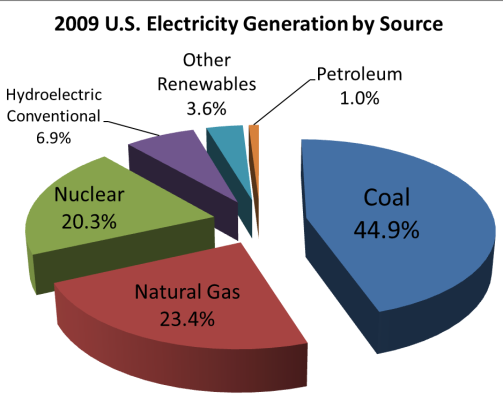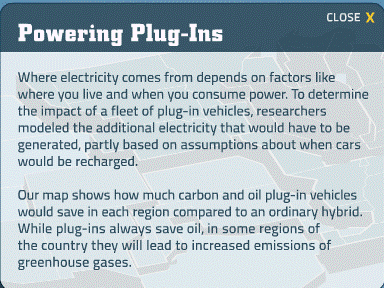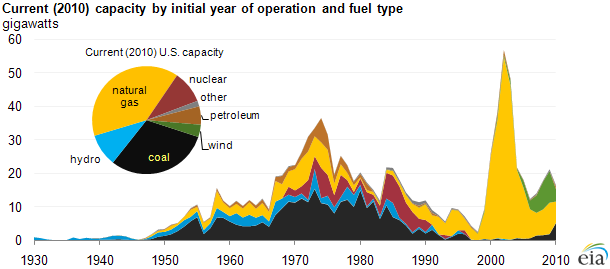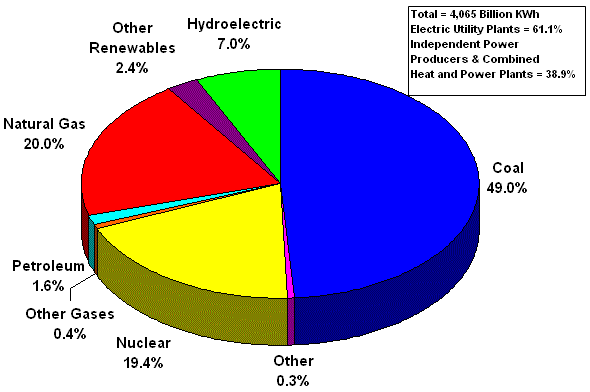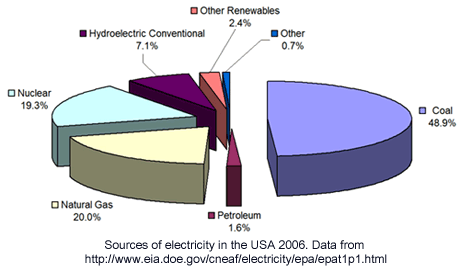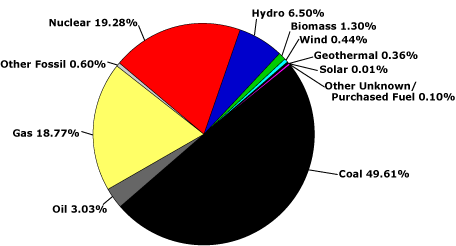An
EV recharged from the existing US grid electricity emits about 115 grams of CO2 per kilometer driven (
6.5 oz(CO2)/mi), whereas a
conventional US-market gasoline powered car emits 250 g(CO2)/km (
14 oz(CO2)/mi) (most from its tailpipe, some from the production and distribution of gasoline).The savings are questionable relative to hybrid or diesel cars (according to official British government testing, the most efficient European market cars are well below 115 grams of CO2 per kilometer driven, although a study in Scotland gave 149.5gCO2/km as the average for new cars in the UK), but would be more significant in countries with cleaner electric infrastructure.
In a worst-case scenario where incremental electricity demand would be met exclusively with coal, a 2009 study conducted by the
World Wide Fund for Nature and IZES found that a mid-size EV would emit roughly 200 g(CO2)/km (
11 oz(CO2)/mi), compared with an average of 170 g(CO2)/km (9.7 oz(CO2)/mi) for a gasoline-powered compact car. This study concluded that introducing 1 million EV cars to Germany would, in the best-case scenario, only reduce CO2 emissions by 0.1%, if nothing is done to upgrade the electricity infrastructure or manage demand.




